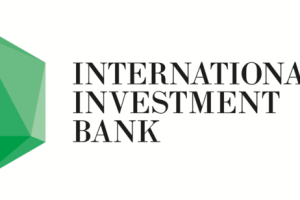Alătură-te comunității noastre!
Vezi cele mai recente știri & informații din piața de capital

The U.S. stock market concluded a robust quarter with notable gains, marking a period of strong performance across major indexes. The S&P 500 Index, a key barometer of U.S. equity market health, achieved new closing and intraday highs, reflecting widespread optimism among investors.
This broad market advance was highlighted by a 1.64% increase in an equal-weighted version of the S&P 500, outpacing the traditional market-weighted index’s 0.39% rise. Small-cap stocks, represented by the Russell 2000, outshone their large-cap counterparts, further underscoring the market’s depth.
The period also witnessed heightened anticipation regarding the economic impact of the Baltimore port closure, following the collapse of a critical bridge.
This incident disrupted one of the nation’s largest ports, raising concerns about the broader economic repercussions, especially in the logistics and transportation sectors.
Economic data released during the week added layers to the market narrative. Durable goods orders saw a 1.4% increase in February, hinting at underlying business strength.
However, the housing market presented a mixed picture, with new home sales unexpectedly declining, despite a recent uptick in existing home sales.
European markets experienced a week of light trading but managed to secure gains ahead of the Easter holiday weekend. The STOXX Europe 600 Index reached a record intraday high, a positive sign amidst economic slowdowns in major economies.
Government bond yields in the region saw a decline, with the European Central Bank hinting at a potential rate cut, signaling a shift in monetary policy dynamics.
The UK officially entered a recession, its first since early 2020, reflecting the fragile state of its economy. Germany, Europe’s largest economy, showed signs of weakness, with a significant drop in retail sales and a revised growth forecast, highlighting the challenges of high interest rates and global demand uncertainties.
Conversely, Spain offered a glimmer of hope with a slight increase in retail sales and a notable drop in industrial producer prices, suggesting some resilience within its economy. Overall, European consumer sentiment showed signs of improvement, indicating a cautious optimism about the economic outlook.
Shifting our focus globally, Japan’s stock markets faced pressure due to a depreciating yen, raising speculation about potential government intervention. The currency’s weakness, however, has been a boon for Japanese exporters, underscoring the complex interplay between exchange rates and trade dynamics.
China’s markets remained under the shadow of ongoing concerns in the property sector, despite the government’s assurances of openness to foreign investment and support for key industries.
The industrial sector showed signs of recovery, with a surge in profits, but the property market slump and deflationary pressures continue to pose challenges to investor sentiment.
In summary, last week’s market movements offer a nuanced view of the global economic landscape, characterized by robust performance in the U.S., mixed signals from Europe, and ongoing challenges in key global industries.
As we navigate through these diverse market dynamics, understanding the interconnections and potential implications becomes crucial for informed decision-making in the business world.









Vezi cele mai recente știri & informații din piața de capital